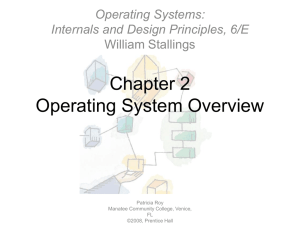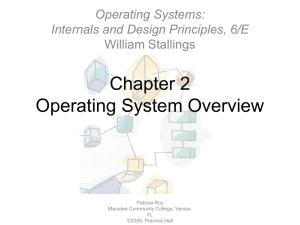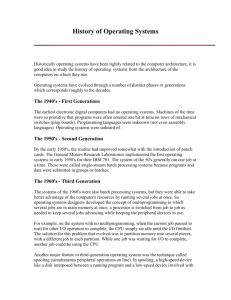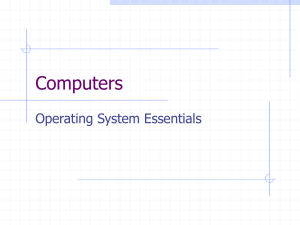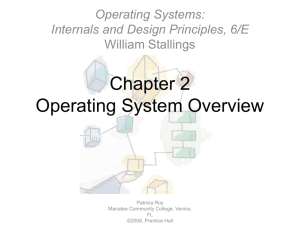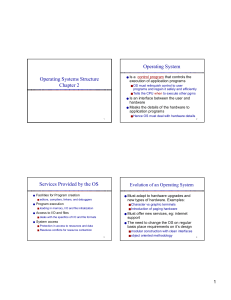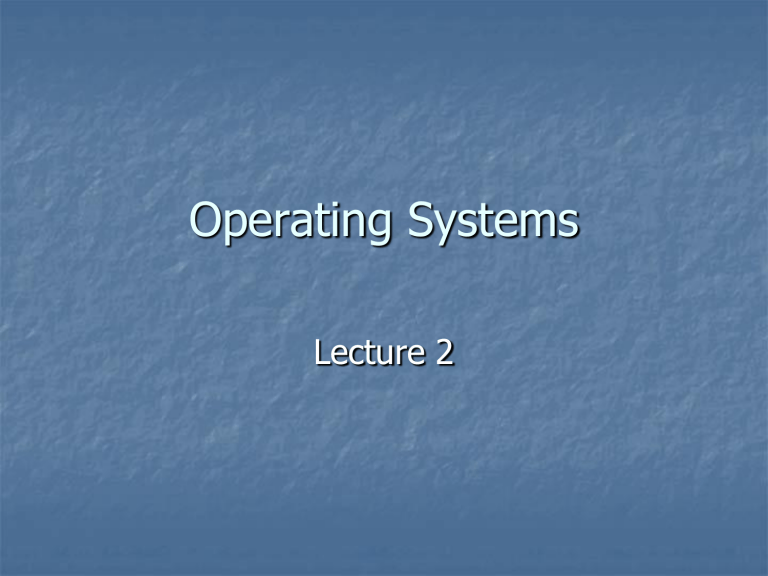
Operating Systems Lecture 2 COMPONENTS Today’s operating systems are very complex. An operating system needs to manage different resources in a computer system. It resembles an organization with several managers at the top level. Each manager is responsible for managing their department, but also needs to cooperate with others and coordinate activities. A modern operating system has at least four duties: memory manager, process manager, device manager and file manager. Components of an operating system Operating System Components and Goals Computer systems have evolved Early systems contained no operating system, Later gained multiprogramming and timesharing machines Personal computers and finally truly distributed systems Filled new roles as demand changed and grew Core Operating System Components Typical operating system components include: Processor scheduler Memory manager I/O manager File system manager Interprocess communication (IPC) manager User interface Each operating system has a user interface, a program that accepts requests from users (processes) and interprets them for the rest of the operating system. A user interface in some operating systems, such as UNIX, is called a shell. In others, it is called a window to denote that it is menu driven and has a GUI (graphical user interface) component. Memory manager One of the responsibilities of a modern computer system is memory management. Although the memory size of computers has increased tremendously in recent years, so has the size of the programs and data to be processed. Memory allocation must be managed to prevent applications from running out of memory. Operating systems can be divided into two broad categories of memory management: monoprogramming and multiprogramming. Monoprogramming In mono programming, most of the memory capacity is dedicated to a single program; only a small part is needed to hold the operating system. In this configuration, the whole program is in memory for execution. When the program finishes running, the program area is occupied by another program. Mono programming Multiprogramming In multiprogramming, more than one program is in memory at the same time, and they are executed concurrently, with the CPU switching rapidly between the programs. Multiprogramming Operating System Goals Users expect certain properties of operating systems Efficiency Robustness Scalability Portability Security Interactivity Usability
